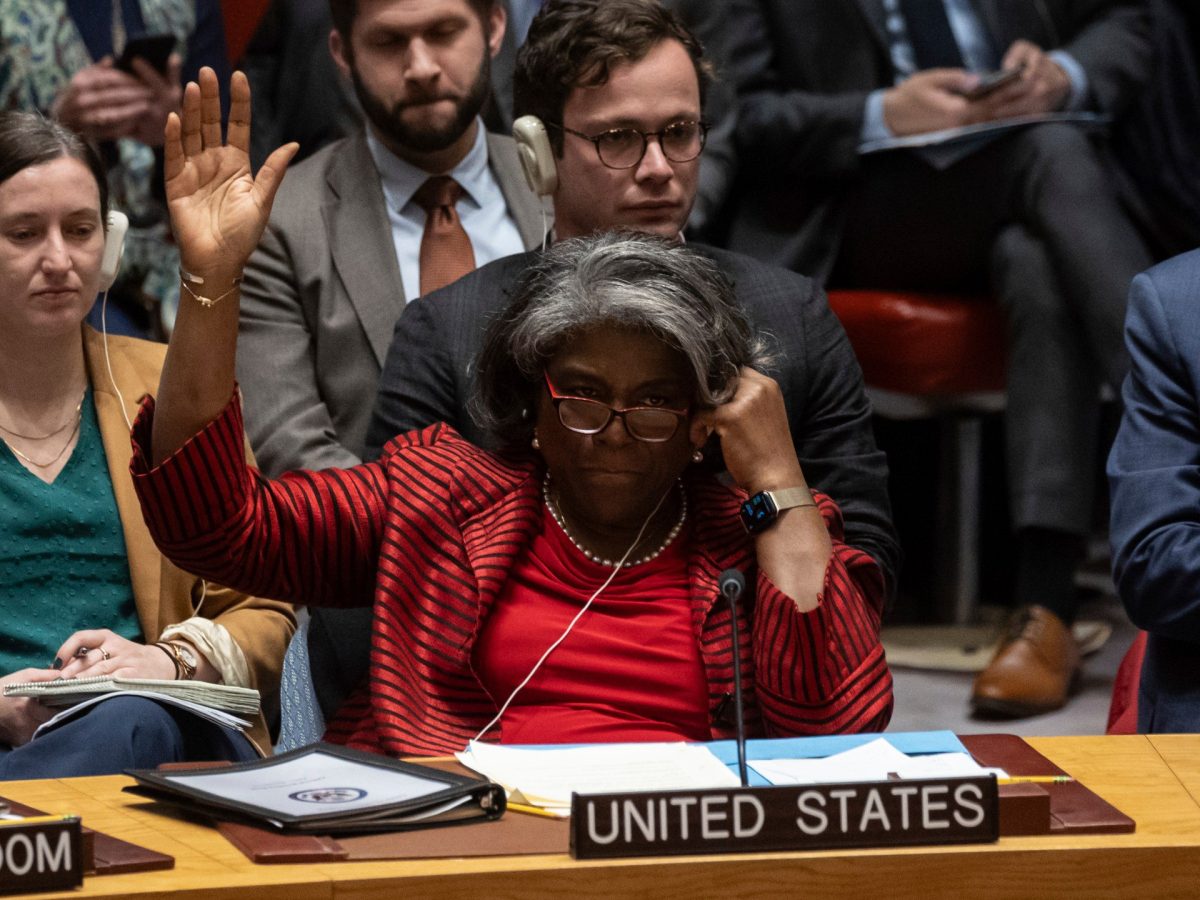The US was the lone vote against a ceasefire resolution put forward on Tuesday by Algeria. The UK was the sole abstention, with 13 votes in support, including those of close allies of Washington who insisted the humanitarian needs of Palestinians outweighed any reservations over the Algerian text.
Washington was widely lambasted for using its veto again at a time when nearly 30,000 Palestinians have been killed and more than 2 million people are under threat of famine.
“A vote in favour of this draft resolution is a support for the Palestinians right to life,” the Algerian envoy to the UN, Amar Bendjama, told the council.
“Conversely, voting against it implies an endorsement of the brutal violence and collective punishment inflicted upon them.”
The Algerian resolution also called for the implementation of provisional measures ordered in January by the international court of justice (ICJ) in The Hague, which instructed Israel to mitigate its offensive to protect civilians, lift impediments on the flow of aid into Gaza, and take action against Israeli politicians using genocidal language.
“Almost one month after the ICJ [ruling] signs of hope are still absent for improvement of the situation in Gaza,” Bendjama stated, adding, “Silence … is not a viable option. Now is the time for action and the time for truth.”
Zhang Jun, the Chinese ambassador, stressed: “The continued passive avoidance of an immediate ceasefire is no different from giving a green light to the continued slaughter.”
The US is shamefully covering for Israel’s plan to make Gaza uninhabitable, Russia’s envoy to the UN Vassily Nebenzia stressed.
The US has drafted an alternative resolution, which calls for a temporary ceasefire “as soon as practicable”, and calls on Israel not to proceed with a planned offensive on Rafah, the southernmost Gazan city where more than a million Palestinians have sought refuge.
However, the US resolution is not likely to go to a vote for several days at least, and the timing of its third ceasefire veto is embarrassing for the US as Washington seeks to build international solidarity in condemnation of Russia on the second anniversary later this week of its full-scale invasion of Ukraine.
Explaining the veto, the US envoy, Linda Thomas-Greenfield, said that President Joe Biden was in the midst of negotiations with Israel, Egypt and Qatar aimed at clinching a comprehensive hostage deal.
“Any action this council takes right now should help, not hinder these sensitive and ongoing negotiations, and we believe that the resolution on the table right now would in fact negatively impact those negotiations,” Thomas-Greenfield argued.
“Demanding an immediate unconditional ceasefire without an agreement requiring Hamas to release the hostages will not bring about durable peace. Instead, it could extend the fighting between Hamas and Israel,” she added, later denouncing the 13 to one vote for the Algerian resolution as “wishful and irresponsible”.
Thomas-Greenfield looked on stony-faced as a series of Washington allies including France, Slovenia and Switzerland explained their reasons for voting for the resolution, despite sharing the US’s reservation that it did not include any condemnation of Hamas, something the security council has so far failed to do. They all argued the humanitarian disaster in Gaza was so dire that stopping the fighting took precedence over such concerns.
Nicolas de Rivière, the French envoy, said Paris regretted that “the resolution was not adopted given the disastrous situation on the ground”.
The only vote sparing the US from total isolation was the British abstention. The ambassador, Barbara Woodward, stated the UK position was to call for an “immediate suspension in fighting to get aid in and hostages out leading to a permanent sustainable ceasefire”.
But Woodward echoed Thomas-Greenfield’s arguments in adding: “Simply calling for a ceasefire, as this resolution does, will not make it happen. Indeed, it could endanger the hostage negotiations. It could actually make a ceasefire less likely.”
The US showed its alternative draft to other council members before Tuesday’s vote. This unusual step was intended, one western diplomat suggested, to avoid giving the impression that the US veto implied a green light for the Israeli attack on Rafah.
The inclusion in the US text of a clause specifically calling on Israel not to mount such an attack, rather than to limit such an appeal to bilateral channels, is widely seen in the UN as a signal of Biden’s growing impatience with Prime Minister Benjamin Netanyahu’s government, and frustration at the US president’s failure to rein in the relentless Gaza offensive, now in its fifth month. No date has yet been set for the start of formal deliberations on the US draft resolution, however.
“It is awfully embarrassing for the Americans,” Richard Gowan, the UN director of the International Crisis Group, stated, adding, “They’ve had to use a veto just days before the security council meeting commemorating Russia’s all-out assault on Ukraine. That will simply fuel talk about US double standards.”
